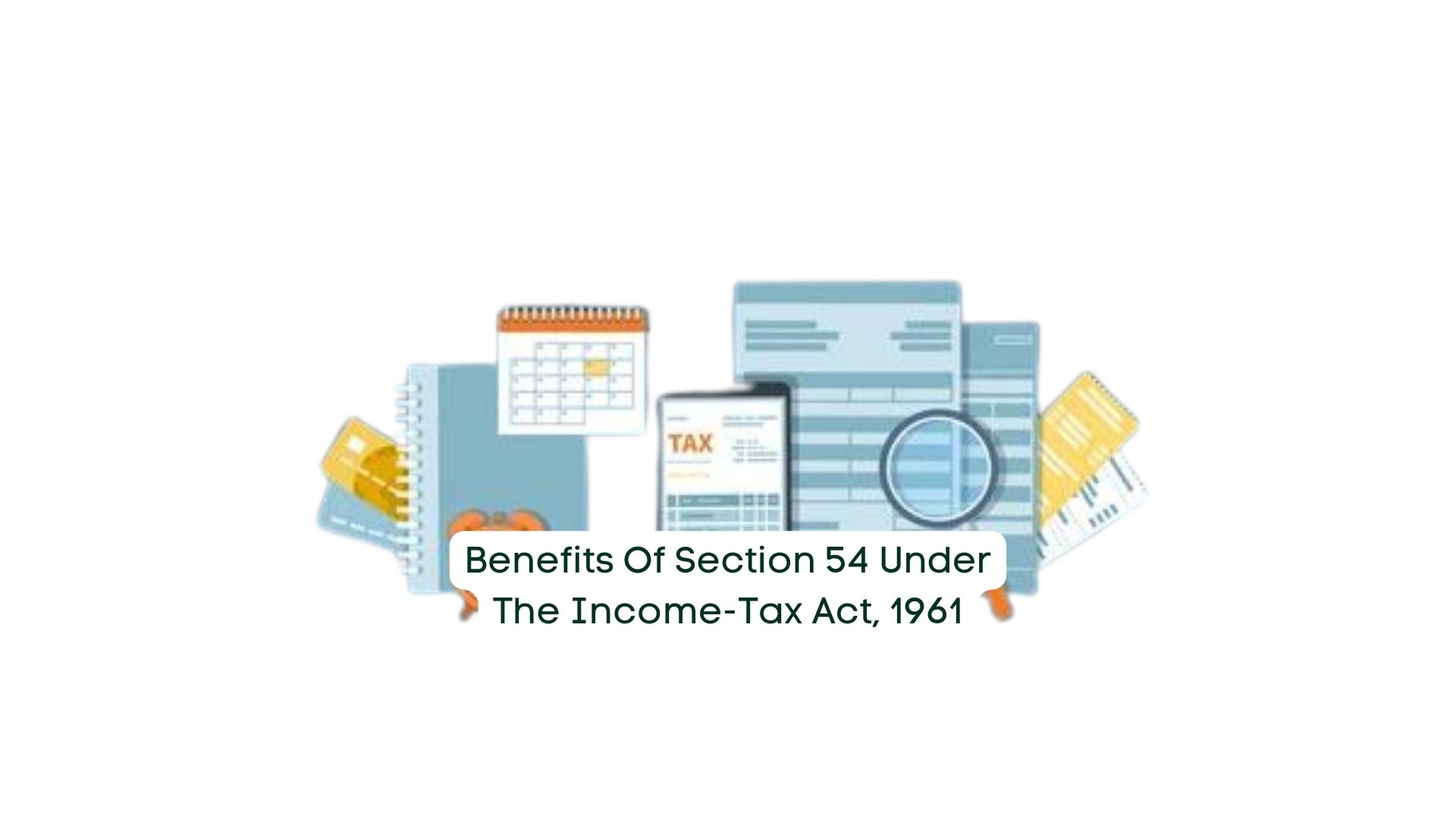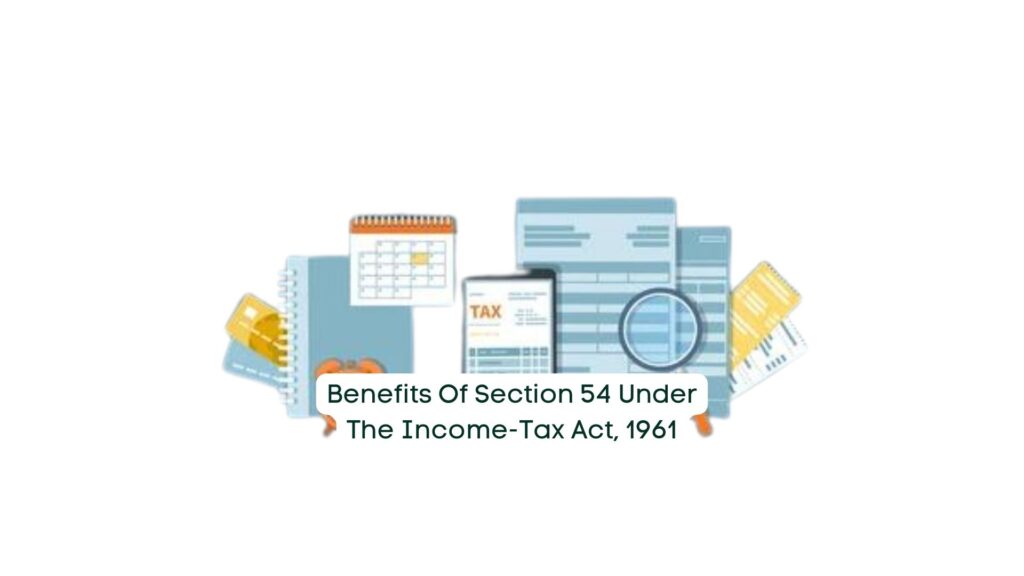
24 Feb Benefits of Section 54 under the Income-tax Act, 1961

Discover the advantages of Section 54 under the Income-tax Act, 1961, in our blog. This provision provides relief to individuals and Hindu Undivided Families (HUFs) dealing with capital gains from residential property sales. Join us as we delve into eligibility criteria, implications of property transfers, and practical strategies to maximize tax benefits under Section 54. Let’s simplify tax complexities and equip you with valuable insights for smarter financial decisions.
Section 54 of the Income-tax Act 1961
Section 54 provided benefits exclusively to individuals or Hindu Undivided Families (HUF).
- The property being transferred must be a long-term residential property.
- The taxpayer must acquire another residential property within one year before or two years after the sale of the old house, or construct a new dwelling within three years from the transfer date of the preceding property. In cases of compulsory acquisition, the construction or acquisition period is calculated from the date of receipt of compensation (original or additional).
Essentials under Section 54 of the Income-tax Act 1961
Under Section 54 of the Income-Tax Act, individuals or HUFs selling residential property may avail tax exemptions on capital gains if a significant portion of the proceeds is reinvested in purchasing or constructing residential property.
- Entities such as corporate firms, LLPs, companies, or any other organizations cannot claim tax exemption under Section 54. The eligibility criteria for claiming benefits under this section are as follows:
- The asset should qualify as a long-term capital asset.
- The property being sold must be a residential house, with income from it categorized as Revenue from House Property.
- The new house must be purchased one year before or two years after the sale/transfer date, or constructed within three years from the sale/transfer date. In the case of construction, the period is extended, starting from the date of sale/transfer. In instances of compulsory acquisition, the period is determined from the date of compensation receipt (initial or additional).
- The new property must be situated in India; exemptions cannot be claimed for properties purchased abroad.
Who is eligible to receive benefits under Section 54?
As per this section, when an assessee sells a long-term residential property and invests in an alternative residential property, they become eligible for tax exemption.
Consequences of transferring a new Property within 3 years
If the assessee buys or constructs a new house within the stipulated time after selling the old property, they may apply for exemption under Section 54.
If the newly acquired property is sold within three years, certain conditions apply. Two scenarios are possible for tax calculation:
- If the cost of the new house is less than the calculated capital gains from selling the original property:
- The released funds from the property transfer are taxed, with the cost of acquiring new assets considered as zero.
Points to remember
- If the cost of the new property is less than the proceeds from selling the original property, exemptions under Section 54F (applicable to long-term gains from selling any property other than residential) can be claimed. Any remaining amount can be reinvested under Section 54EC within six months of the transfer to save tax.
Final thoughts
Section 54 of the Income Tax Act provides exemptions for the sale of residential property, offering tax benefits on long-term capital gains from such sales. Individuals can claim these benefits by purchasing or constructing a new residence or by depositing the proceeds into the Capital Gains Account Scheme at authorized banks.


No Comments